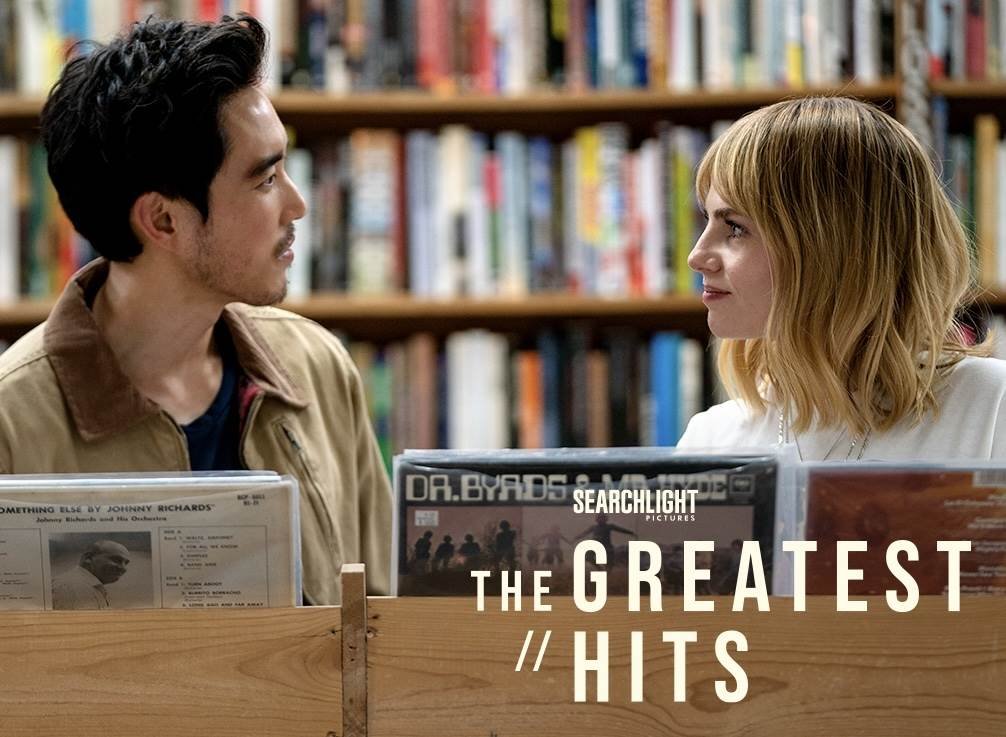
The Greatest Hits
If you’re a fan of the type who would like to see an old-fashioned romantic comedy that could have been made in the ‘90s or early aughts and has all the usual suspects including the newly widowed protagonist, the dreamy lost love, the sassy truth-telling best friend, the equally hunky potential new love and his cynical yet adoring sister “The Greatest Hits” will check most if not all of your boxes. The trouble is, by the end, you’re likely to be too aware of those boxes as they get ticked off; for all their nearly faultless execution, these performances rarely elevate their characterizations above what we expect from such “types.” And only one of this love triangle’s three central relationships (between a grieving woman, her dead boyfriend’s memory and a super appealing new guy she meets at grief counseling) comes across fully as a person rather than just a role thanks more to performer than writing.
As filmmaking, “The Greatest Hits” is not without ambition or pedigree. A decade ago writer-director Ned Benson took a big swing with “The Disappearance of Eleanor Rigby,” which recounted a relationship from two lovers’ perspectives then re-edited them into one combined narrative (they were subtitled “His,” “Hers” and “Them,” and are available in that order). This time he has added some “Slaughterhouse Five” Whenever our heroine Harriet (Lucy Boynton) hears a song that reminds her of a moment she shared with her late boyfriend Max (David Corenswet, newly minted Superman for James Gunn), she trips backwards in time.
The biggest problem, for me anyway, is that when the movie finally commits to and executes its concept in a scientific procedural way, it’s over. And so here we are. Chung Chung hoon’s shimmering, lens flare y photography, Page Buckner’s dense and meticulous but never showy production design, Olga Mill’s costumes all of it goes right up to the edge of a sci-fi parable love story (parts of it reminded me of “Everything Everywhere All At Once,” especially this one song that triggers Harriet and the movie starts straining and vibrating inside the projector) but doesn’t cross over. I wanted it to. I know that’s not fair; you’re supposed to judge movies on what they are rather than what you want them to be, or else everything starts looking like step 1 of making yourself an easy mark for grifters. The thing is: What it is gets repetitive without enough real-world messy specificity to make repetitiousness the point, and the reward, of watching.
Morris (Austin Crute), Harriet’s best friend who is a DJ, tells her sweetly but firmly that she has gotten herself stuck in a grief loop where she punishes herself constantly and needs to get out because now it has turned into a kind of sick safe place that allows her not to move on (“Grief is temporary but loss is forever” being her group’s mantra). The better realistic dramas about grief have either an anthropological level of detail about how and why people feel certain things or else translate it into bold but easy to grasp metaphors (science fiction and horror being particularly good at providing those). This one stays between those two things without moving forward or making choices itself like Harriet.
Boynton does do quite a bit with very little here. The character is almost entirely defined by her loss (which nobody who has lost would appreciate) and the things she does to manage it (wearing noise canceling headphones in public so as not to hear a triggering song, going through her music collection and getting rid of anything that could send her spiraling down into grief, taking a job at a public library, which is silent because what do you expect). The great lost love itself is an abstraction handsome man who loved Harriet and was a musician and for whom she produced albums (this last bit being new information that is introduced too late) and could be kind of self centered. Are we seeing him this way because Harriet idealized him until he was dehumanized? Nothing in the movie supports this idea except for one or two too late intimations in the third act. All the other supporting players have maybe one and a half dimensions at best, though they’re so well acted that it’s hard not to like them anyway.
“After Yang” actor Justin H. Min is a lifesaver. Just by being there, really. Without him, the movie would be dead in the water or somewhere near it. He has this natural sunny-ness to his presence that could come off as self-important and grating if he wasn’t so brilliantly controlled about it. You know whatever he’s saying or doing, it’s because he genuinely cares about Harriet as a person and wants what’s best for her. He may be John Cusack’s character from “Say Anything” in its latest evolutionary form young straight American man #5 (or whatever), now with even more heart! But damn if you don’t believe him every second of it well, every second except the boombox scene, which we can now call what it was: stalking-ish behavior on Lloyd Dobbler’s part.
For More Movies Visit Putlocker.